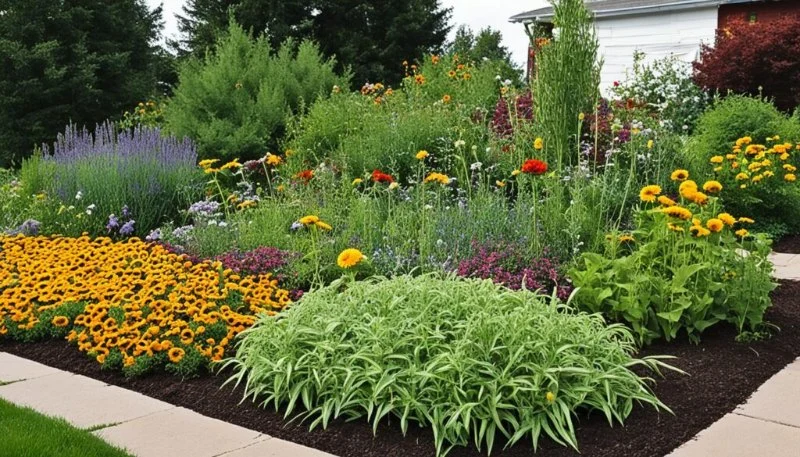
- 1 - Understanding the Importance of Pest Control for Landscapes
- 2 - How Pests Affect Your Landscape
- 3 - Seasonal Approach to Pest Control
- 4 - Natural Pest Control Methods
- 5 - Chemical Pest Control Options
- 6 - When to Call a Professional for Pest Control
1. Understanding the Importance of Pest Control for Landscapes
Maintaining a healthy, pest-free landscape is essential not only for aesthetic reasons but also for the overall health of your garden and outdoor spaces. Pests can cause significant damage to plants, trees, lawns, and even hardscaping features, leading to decreased property value and the need for costly repairs or replacements. Effective pest control ensures that your landscape thrives and remains beautiful year-round.
In addition to protecting plants from damage, pest control is also crucial for preventing the spread of diseases. Insects such as aphids and spider mites can carry viruses that harm plants, while rodents can damage underground structures and plants. A well-maintained pest control strategy minimizes these risks and helps ensure a thriving outdoor environment.
2. How Pests Affect Your Landscape
Pests can harm landscapes in numerous ways, including damaging plants, trees, and the overall structure of the garden. Some of the most common effects pests have on landscapes are:
2.1 Plant Damage
Pests such as aphids, caterpillars, and beetles are notorious for feeding on plants, stripping leaves, and damaging flowers and fruit. This can lead to stunted growth, yellowing leaves, or even plant death if left untreated. Certain pests also feed on the roots of plants, weakening them and making them more susceptible to disease and environmental stress.
2.2 Disease Transmission
Many pests act as vectors, carrying diseases that can spread throughout your landscape. For example, mosquitoes are responsible for spreading diseases like West Nile virus and Zika, while termites can damage wood structures and attract fungi. By controlling pests, you reduce the chances of these diseases spreading through your garden and surrounding areas.
2.3 Structural Damage
Rodents and insects like termites can also cause damage to the hardscaping features in your landscape. For instance, termites can damage wooden fences, garden structures, and even your home’s foundation if not controlled. Rodents may burrow into lawns or gardens, causing holes and weakening the soil structure, which can lead to uneven surfaces or sinking areas.
3. Seasonal Approach to Pest Control
Pest control for landscapes is not a one-time task; it requires a seasonal approach to ensure pests are kept in check throughout the year. Each season presents unique challenges and opportunities for pest control:
3.1 Spring: Early Prevention
Spring is the time when pests begin to emerge from their winter dormancy. It’s crucial to start pest control early to prevent infestations later in the season. Begin by inspecting your garden for any signs of pests and treating plants with natural or chemical solutions as needed. Early pest prevention can stop many problems before they become widespread.
3.2 Summer: Active Monitoring
During the summer, pests are most active, making it essential to monitor your landscape regularly. Focus on watering plants early in the morning to prevent attracting pests, and check for signs of infestation in shady areas where insects like to gather. Use traps, barriers, and natural repellents to keep insects and rodents at bay.
3.3 Fall: Prepare for Winter
As the weather cools, pests begin to seek shelter, often within structures or under piles of leaves. Make sure to clear away fallen debris, as these areas are perfect hiding spots for insects and rodents. Fall is also an ideal time for a final treatment of pest control products to prevent winter infestations.
3.4 Winter: Preventative Measures
In winter, pests are less active, but they can still cause damage by seeking shelter in your home or landscape structures. Use winter months to perform any necessary repairs to fencing, seal any gaps in structures, and clear away any debris that could attract pests. Keep an eye on any signs of pest activity, particularly in sheds or basements, where rodents are likely to seek refuge.
4. Natural Pest Control Methods
Natural pest control methods can be highly effective in maintaining a pest-free landscape without relying on harsh chemicals. Here are some popular options:
4.1 Companion Planting
Some plants naturally repel pests and can be strategically planted to protect more vulnerable plants. For example, planting marigolds around vegetables can help repel aphids and other insects, while basil and garlic are known to deter mosquitoes and flies.
4.2 Biological Control
Using beneficial insects, such as ladybugs, can help reduce pest populations. Ladybugs feed on aphids and other harmful insects, providing a natural form of pest control without the need for chemicals. Encourage these insects by creating a habitat that supports them.
4.3 Homemade Remedies
There are several natural sprays you can make at home to help deter pests. A common mixture includes neem oil, which is effective for repelling insects and reducing the spread of plant diseases. Garlic or peppermint oil sprays can also work to keep pests like aphids, ants, and rodents at bay.
5. Chemical Pest Control Options
While natural methods are effective, there are times when chemical pest control may be necessary, especially for more severe infestations. Here are some options to consider:
5.1 Insecticides
Insecticides can be effective in controlling a wide range of pests, including aphids, beetles, and mosquitoes. Choose a product that is safe for use on plants and follow the manufacturer’s instructions carefully to minimize harm to beneficial insects.
5.2 Rodenticides
For controlling rodents, rodenticides may be needed. These products can effectively eliminate rats and mice from your landscape, but they should be used with caution to avoid harming pets and non-target animals. Bait stations and traps are safer alternatives that can be used in conjunction with rodenticides for more targeted control.
5.3 Professional-Grade Solutions
If you're facing a significant pest problem, you may want to consider professional-grade solutions, which are often more potent and long-lasting. These products should only be applied by trained professionals to ensure safety and effectiveness.
6. When to Call a Professional for Pest Control
While DIY methods can be effective, there are times when it's best to call in a professional pest control service. If you’re facing a large-scale infestation or if your efforts are not yielding results, professional services can provide targeted and long-lasting solutions. A pest control expert can assess the situation, recommend appropriate treatments, and offer ongoing pest management plans for your landscape.
At PestControlHub, we offer expert pest control services tailored to your landscape’s needs. Whether you're dealing with a persistent rodent issue or seasonal insect problems, our team is equipped to handle all types of pests efficiently and safely. Visit our website to explore our pest control solutions and find the best products for maintaining a pest-free landscape year-round.
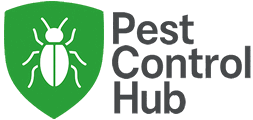
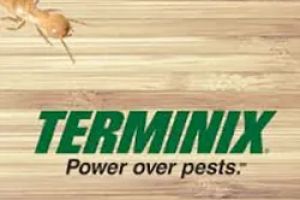
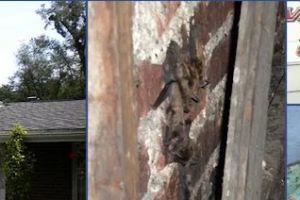
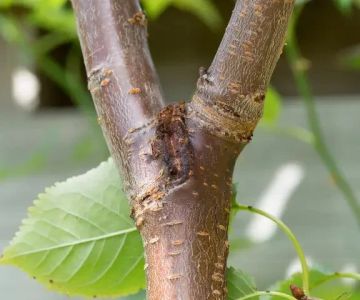


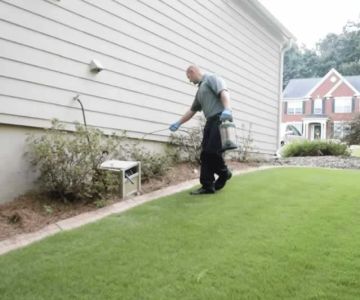
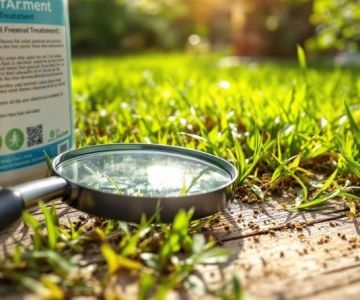
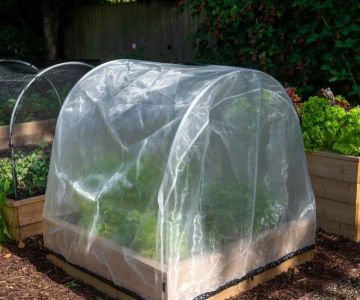
 Mira Home4.0 (1930 reviews)
Mira Home4.0 (1930 reviews) Orkin4.0 (1681 reviews)
Orkin4.0 (1681 reviews) Appalachian Termite and Pest Control, LLC4.0 (115 reviews)
Appalachian Termite and Pest Control, LLC4.0 (115 reviews) EcoShield Pest Solutions4.0 (2991 reviews)
EcoShield Pest Solutions4.0 (2991 reviews) Lawn Doctor of South Shore4.0 (1434 reviews)
Lawn Doctor of South Shore4.0 (1434 reviews) Selway Termite CO INC4.0 (7 reviews)
Selway Termite CO INC4.0 (7 reviews) How to Inspect for Pests After Heavy Rain
How to Inspect for Pests After Heavy Rain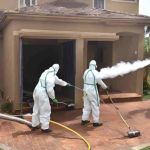 How to Safely Use Fumigation Methods for Pest Control
How to Safely Use Fumigation Methods for Pest Control How to Recognize Pest Eggs and Larvae Before It’s Too Late
How to Recognize Pest Eggs and Larvae Before It’s Too Late The Best Eco-Friendly Pest Control Products You Can Buy
The Best Eco-Friendly Pest Control Products You Can Buy How to Prevent Pest Intrusions at Door Frames: Effective Solutions for Homeowners
How to Prevent Pest Intrusions at Door Frames: Effective Solutions for Homeowners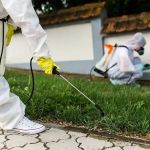 How to Use Insect Growth Regulators (IGRs) Effectively – A Guide to Pest Control
How to Use Insect Growth Regulators (IGRs) Effectively – A Guide to Pest Control